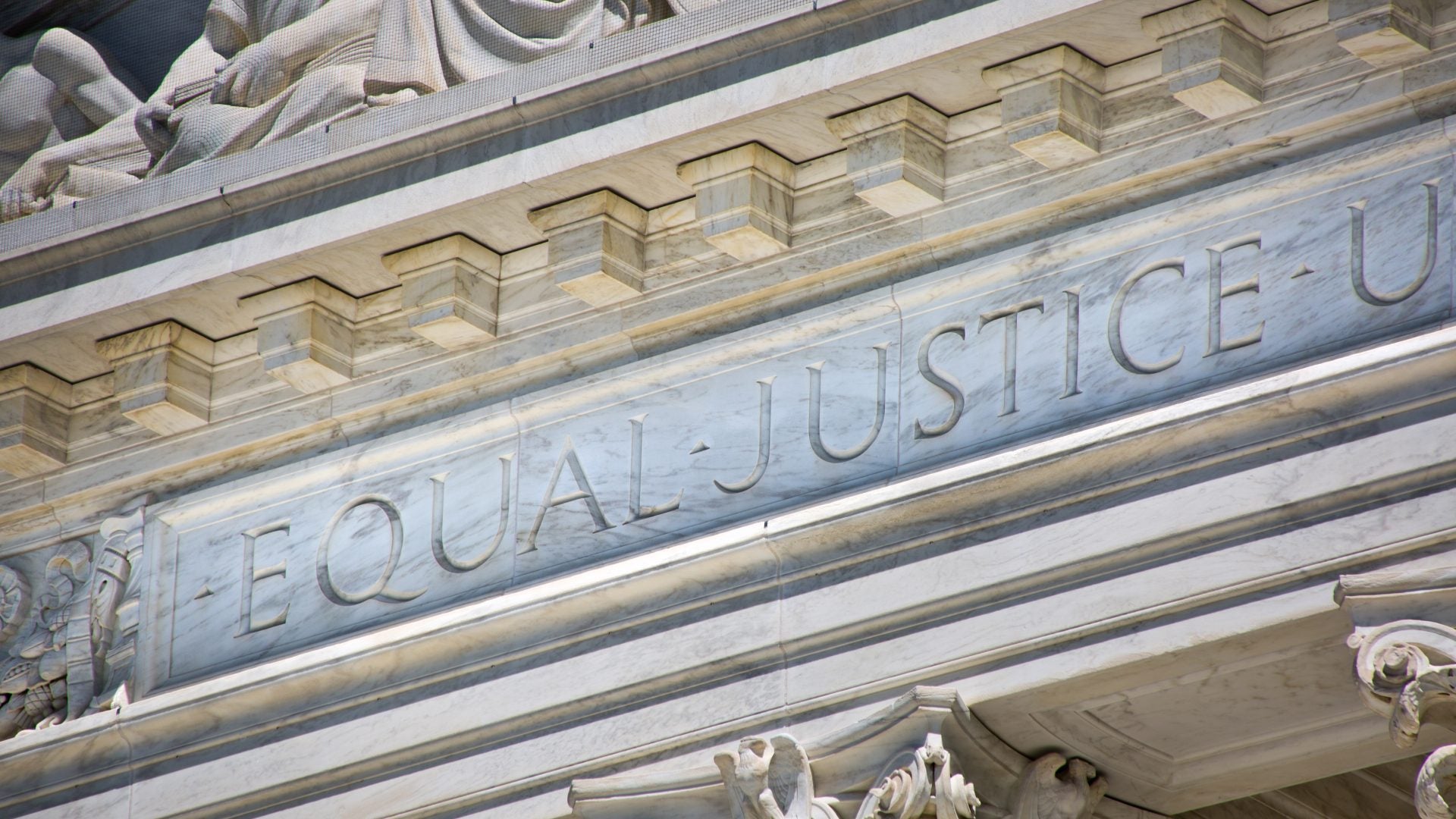
Black History Month 2020 falls at the intersection of critical milestones in American democracy and the reckoning of the upcoming November elections. For nearly 250 years — most of this nation’s history — its laws enabled the sadist practice of chattel slavery of Black people.
For 150 years following this ignominious history, formerly enslaved Black people and their descendants have worked to reform the American ethos to reflect its highest ideals, despite intransigent obstacles. And, for the past 80 years, the NAACP Legal Defense and Educational Fund has fought to secure equal justice under the law for African Americans — an essential component of our democracy’s integrity. Despite this progress, though, our country finds itself at a crossroads. November’s elections will test whether our democracy continues to undergo regressive de-maturation or whether we can confront our racial divisions and structural racism head-on.
The work of racial justice begins with transcending the mutating narrative of anti-Blackness that has long painted Black Americans as subhuman, second-class citizens. As optimal workhorses under enslavement and lazy and shiftless upon manumission. As docile and doltish to justify our servitude, and cunning and criminal to justify our mass incarceration. Whichever narrative suited the agenda of white supremacy prevailed. It is these narratives and stereotypes that comprise the DNA of American legal, economic, and social systems and, in part, the current demise of our democracy.
But, through the work of advocates, activists, organizers, agitators, and everyday martyrs who were neither learned nor leaders, this country’s laws have evolved to acknowledge the humanity of a people it never intended to serve. In fact, the civil rights milestones of the past decade epitomize the abiding but byzantine nature of racial justice-related progress. After becoming the first African-American president in 2008, Barack Obama won reelection to a second term, serving eight years in office. During this time, the Department of Justice increased federal investigations and oversight of police departments that engaged in civil rights violations. It filed an amicus brief in a Supreme Court case to support the rights of same-sex couples to marry, mirroring Obama’s newly-evolved views. Obama also signed the Fair Sentencing Act, which helped diminish racial disparities in penalties for crack versus powder cocaine offenses. His administration also supported two other landmark Supreme Court cases, one which affirmed that universities can consider race in college admissions, and another that found that the Fair Housing Act prohibits housing policies that have a disparate and adverse impact on protected groups.
But, there have also been many notable setbacks. Another Obama-era Supreme Court case, Shelby v. Holder, eviscerated one of the most transformative tools to protect against racial discrimination in voting — Section 5 of the Voting Rights Act. This ruling dealt a disastrous blow to communities of colors’ ability to exercise their full rights of citizenship through the electoral process, and fueled an already-roaring wave of insidious voter suppression that threatens to compromise our elections.
Indeed, the moral descent and anti-democratic policies that the Trump administration and its supporters instigate almost defy belief and description. The hatred fomented against immigrants and human rights atrocities inflicted upon migrant families will forever condemn this country. The rollback of domestic civil rights, including the immediate curtailment of federal oversight of police violence amidst a policing crisis, has been feverish. Additionally, the Trump administration has pointedly filled federal benches with judges who have a history of disturbing and biased behavior or rhetoric, are substantially lacking in qualifications, or both. Moreover, the president has installed agency heads who seem set on dismantling civil rights protections, including Betsy DeVos, who has rescinded or rewritten dozens of guidance documents regarding students’ rights, and Ben Carson, who has done significant damage to housing policy.
Despite these setbacks, there have been critical wins — enabled by a balance of power protections in our governmental system and the work of civil rights groups. Following legal challenges by civil rights advocates, courts have repeatedly struck down efforts to end the Deferred Action for Childhood Arrivals program, though the Supreme Court is revisiting this issue. Courts also blocked a Trump Commerce Department’s decision to incorporate a discriminatory citizenship question into the 2020 Census, which would have led to a significant undercount of communities of color. Civil rights organizations, including LDF, sued to dismantle the (now-defunct) Presidential Commission on Election Integrity – a group allegedly created to combat (non-existent) voter fraud, but that instead investigated and intimidated voters of color.
These challenges and victories of the past decade — and the broader history of the struggle for racial justice in America — illustrate that we must hold fast to the belief that justice is achievable, even when the odds seem impossible and norms are pressure-tested. In those instances, it is especially necessary to push for systemic and institutional reforms to protect and advance civil and human rights. The structural integrity of checks and balances in our government, though strained, allows our nation to withstand the sociopolitical pendulum swings of a young democracy. It is imperative that we continue to demand accountability through these structures to safeguard hard-won progress and to continue to purge the legacies of racism embedded in our constitution.
Most critically, for the 2020 elections and beyond, our voting systems must be inclusive and accessible. We must adopt early voting and national automatic voter registration, which the For the People Act of 2019 proposes. We must institute veritable universal suffrage by prohibiting suppressive and discriminatory voter ID laws and laws that deny those with criminal convictions the right to vote. We must advocate for comprehensive and restorative federal regulations to protect voters and our elections, like the Voting Rights Advancement Act and the Election Security Act.
2020 demands that we persist with the visionary work of reforming our democracy because it is essential to its legitimacy. The long arc of our nation’s history underscores that racial justice progress is complex, nuanced, and inconsistent; but, it is our collective work to ensure that, no matter the winding of that road, the lodestar is justice.
Janai Nelson is the Associate Director-Counsel of the NAACP Legal Defense Fund.






